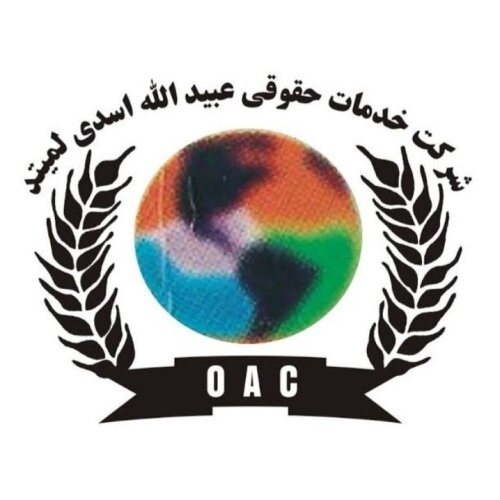Best International Trade Law Lawyers in Afghanistan
Share your needs with us, get contacted by law firms.
Free. Takes 2 min.
Or refine your search by selecting a city:
List of the best lawyers in Afghanistan
About International Trade Law in Afghanistan
International Trade Law in Afghanistan is a specialized area of law that governs the exchange of goods, services, and capital across national borders. It is designed to foster smooth and fair trade interactions between Afghanistan and other nations. The legal framework is influenced by Afghanistan's participation in international trade organizations and treaties, as well as its domestic legal policies. These legal regulations are crucial for regulating exports and imports, addressing trade disputes, and ensuring compliance with international standards.
Why You May Need a Lawyer
Engaging with international trade involves complex regulations and compliance issues. Some common situations that might require legal assistance include:
- Navigating import/export regulations and customs procedures.
- Resolving trade disputes with foreign entities.
- Ensuring compliance with international trade agreements.
- Handling issues related to tariffs, quotas, and trade barriers.
- Drafting and reviewing international trade contracts.
Legal advice can help to minimize risks and ensure smooth transactions in the dynamic field of international trade.
Local Laws Overview
The legal environment in Afghanistan related to international trade is governed by a combination of local and international laws. Key aspects include:
- Customs Law: This regulates the duties, tariffs, and procedures for goods entering or leaving the country.
- Contracts Law: Essential for drafting enforceable agreements between Afghan and foreign parties.
- Foreign Investment Law: Provides guidelines for foreign entities wishing to invest or trade in Afghanistan.
- International Treaties and Agreements: Afghanistan is a party to several international trade treaties, which it has integrated into its national legal framework.
Frequently Asked Questions
What is the first step in starting international trade in Afghanistan?
The first step is to familiarize yourself with the local and international regulations that govern the type of goods or services you intend to trade. Consider consulting with a legal expert to ensure compliance.
Do I need to register my business in Afghanistan for international trade?
Yes, businesses engaged in international trade must be registered and comply with all local business regulations.
Are there specific restrictions on items that can be exported or imported?
Afghanistan has specific regulations and restrictions on certain goods, including those related to national security, public health, and the environment. Checking with customs authorities is advisable.
How are trade disputes resolved in Afghanistan?
Trade disputes in Afghanistan can be resolved through arbitration, mediation, or litigation, depending on the nature of the dispute and the agreement between the parties involved.
What taxes apply to international trade transactions?
Various taxes, duties, and tariffs apply depending on the nature of the goods and services. Consulting with a legal expert can help in navigating these financial obligations.
How can I ensure compliance with international trade agreements?
Staying updated on international trade laws and agreements relevant to your trade activities, and seeking legal advice, can help in maintaining compliance.
What role does Afghanistan play in global trade agreements?
Afghanistan participates in multiple international trade organizations and agreements, which influence its trade policies and regulations.
Can foreign companies operate independently in Afghanistan?
Yes, but foreign companies must comply with Afghanistan’s foreign investment laws and may require special licenses and registrations.
What are the consequences of non-compliance with trade regulations?
Non-compliance can result in fines, penalties, and potentially harm trade relationships. It may also lead to legal actions and loss of trading privileges.
Is there any support for small enterprises in the field of international trade?
Yes, various government and non-government programs support small and medium-sized enterprises to engage in international trade, providing financial and advisory assistance.
Additional Resources
For those seeking further information or assistance in international trade law, the following resources can be helpful:
- Afghan Ministry of Commerce and Industry: Provides guidance on trade regulations and support for businesses.
- Chambers of Commerce and Industry: Offer valuable networking and information resources for traders.
- International Trade Center: A joint agency of the United Nations and the World Trade Organization that supports trade in developing countries.
- Afghanistan Investment Support Agency (AISA): Provides assistance to foreign and domestic investors.
Next Steps
If you require legal assistance in international trade law, consider taking the following steps:
- Consult with a legal professional specializing in international trade law to understand your rights and obligations.
- Contact relevant Afghan regulatory bodies for specific guidance related to your trade activities.
- Engage with local business networks for support and insights from other trade professionals.
- Ensure all trade agreements and contracts are reviewed by a qualified lawyer before execution.
Seeking out reputable law firms or legal practitioners experienced in international trade can provide vital support for navigating this complex legal landscape.
Lawzana helps you find the best lawyers and law firms in Afghanistan through a curated and pre-screened list of qualified legal professionals. Our platform offers rankings and detailed profiles of attorneys and law firms, allowing you to compare based on practice areas, including International Trade Law, experience, and client feedback.
Each profile includes a description of the firm's areas of practice, client reviews, team members and partners, year of establishment, spoken languages, office locations, contact information, social media presence, and any published articles or resources. Most firms on our platform speak English and are experienced in both local and international legal matters.
Get a quote from top-rated law firms in Afghanistan — quickly, securely, and without unnecessary hassle.
Disclaimer:
The information provided on this page is for general informational purposes only and does not constitute legal advice. While we strive to ensure the accuracy and relevance of the content, legal information may change over time, and interpretations of the law can vary. You should always consult with a qualified legal professional for advice specific to your situation.
We disclaim all liability for actions taken or not taken based on the content of this page. If you believe any information is incorrect or outdated, please contact us, and we will review and update it where appropriate.
Browse international trade law law firms by city in Afghanistan
Refine your search by selecting a city.












